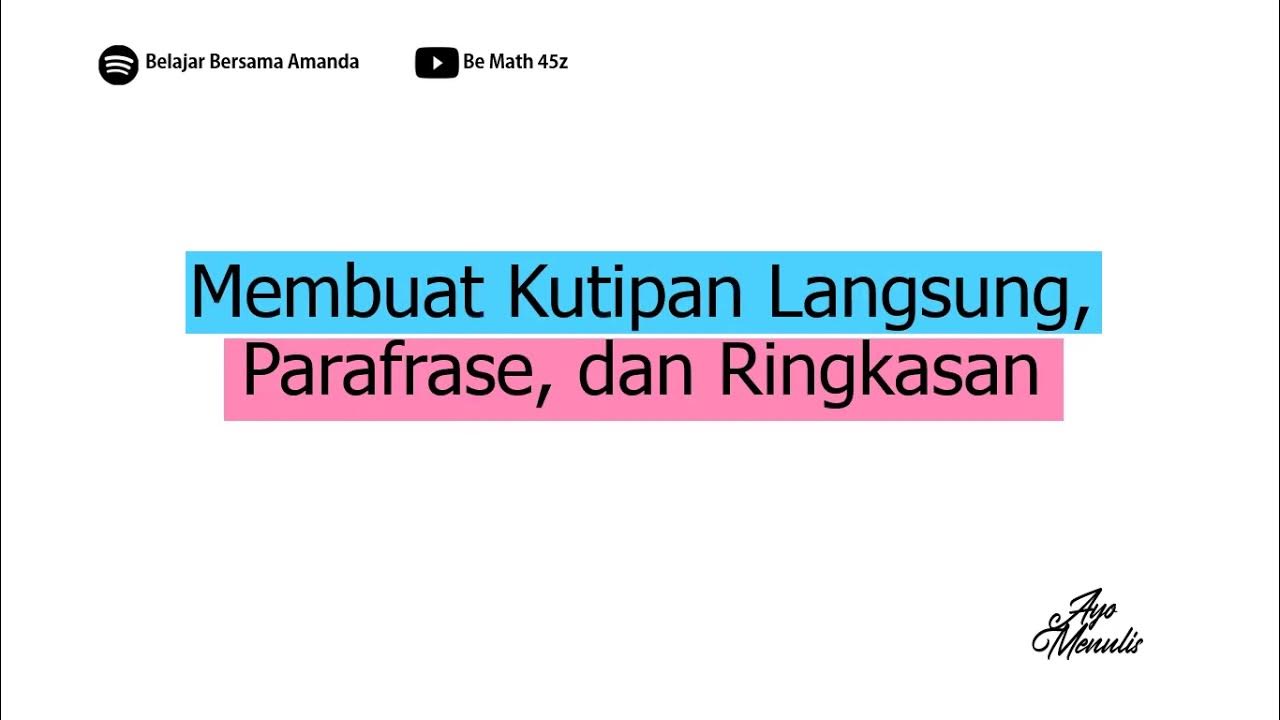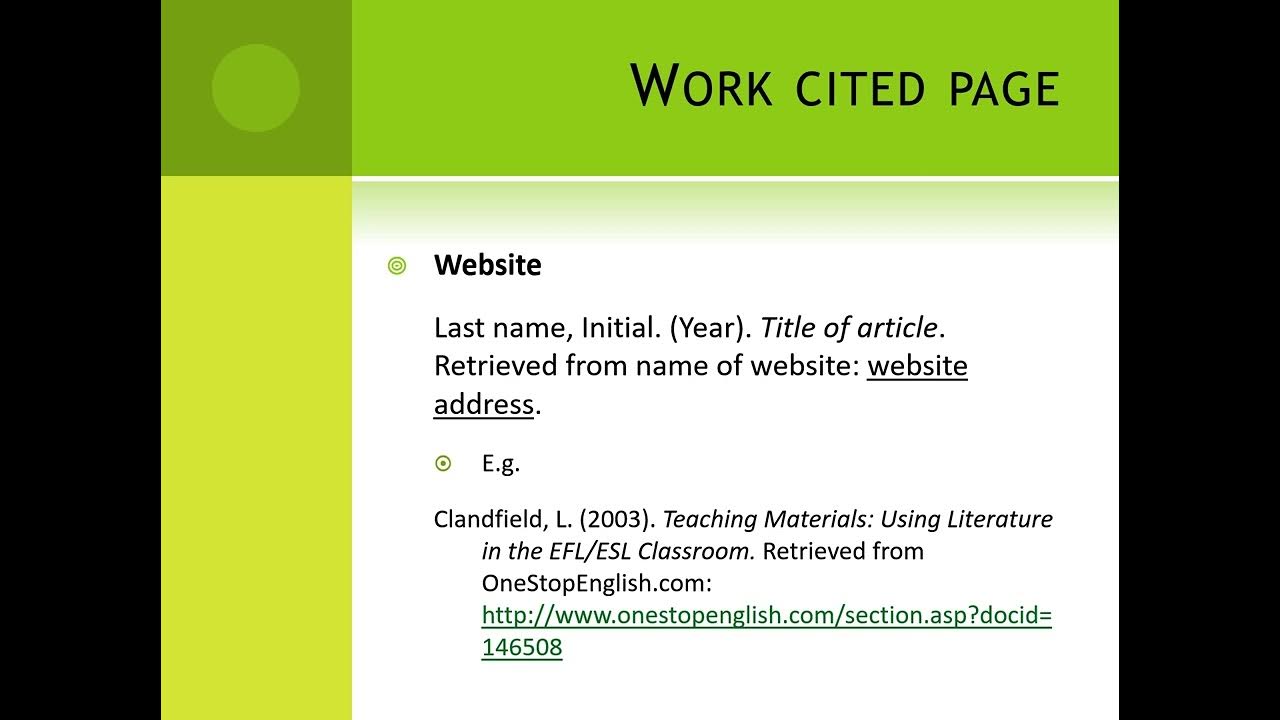When should you include in-text citations? | Learn how and where to use in-text citations
Summary
TLDRIn this instructional video, the speaker explains the significance of citations in academic writing. They emphasize that citations provide necessary support for claims and help establish credibility by referencing reliable sources. The speaker outlines when to cite, highlighting the importance of factual information, causative relationships, and significant claims. They also caution against over-citing, noting that not every sentence requires a citation. The video concludes by encouraging students to understand proper citation practices to enhance their writing skills and integrity, ultimately fostering a more credible academic environment.
Takeaways
- 📚 Citations are essential in academic writing as they validate claims and support conclusions.
- 🔍 The number of citations required varies based on assignment guidelines; it's crucial to follow these instructions.
- 📊 Always cite factual information, such as statistics or data points, to enhance credibility.
- ⚖️ When claiming causative relationships (e.g., 'A causes B'), provide scientific evidence to back up these assertions.
- 💡 Significant claims (e.g., 'Kenya is one of the richest countries in Africa') require proper citations to verify accuracy.
- 📖 If discussing complex topics, cite relevant sources to avoid digressing from the main argument while offering readers further information.
- 🚫 Avoid citing common knowledge or widely known facts unless necessary, as this can clutter your writing.
- ✏️ Be cautious with paraphrasing; always ensure that the original source is credible and aligns with citation requirements.
- 🔗 Distribute citations thoughtfully throughout the paper, ensuring they correspond with the content and claims being made.
- 🌟 Engage with sources to accurately represent their content and maintain scholarly integrity in your writing.
Q & A
Why are citations important in academic writing?
-Citations are crucial because they provide scientific evidence to support conclusions, helping to validate the information presented in an academic paper.
How does the number of required citations typically get determined?
-The number of citations required is usually specified in the assignment guidelines provided by the instructor.
What types of sources might be allowed for citations?
-Some assignments may restrict citations to scholarly sources, while others may permit a broader range of credible information.
When should citations be included within a paper?
-Citations should be included in sentences that present factual information, such as statistics or data, as well as in claims suggesting causative relationships.
Can you give an example of a sentence that requires a citation?
-An example would be, 'Kenya's population is 57 million,' as it presents a specific, verifiable fact that needs citation.
What should you do when making a claim about a relationship between two variables?
-When claiming a causative relationship, such as 'injuries cause depression,' it is important to provide citations from credible scientific studies that support this assertion.
Is it necessary to cite common knowledge or widely known facts?
-No, commonly known facts or public information typically do not require citations, as they can be found in various sources and are widely accepted.
What should you do if you paraphrase someone's work?
-If you paraphrase someone else's work, you should cite that individual to give them credit, ensuring the source meets the assignment’s citation criteria.
Why might citing a non-scholarly source, like a blog, be problematic?
-Citing a non-scholarly source may be problematic if the assignment guidelines specify the use of scholarly references, which could lead to a violation of the instructions.
What are linking sentences, and do they require citations?
-Linking sentences connect ideas but do not introduce new factual information; therefore, they typically do not require citations.
Outlines

This section is available to paid users only. Please upgrade to access this part.
Upgrade NowMindmap

This section is available to paid users only. Please upgrade to access this part.
Upgrade NowKeywords

This section is available to paid users only. Please upgrade to access this part.
Upgrade NowHighlights

This section is available to paid users only. Please upgrade to access this part.
Upgrade NowTranscripts

This section is available to paid users only. Please upgrade to access this part.
Upgrade NowBrowse More Related Video

KUTIPAN DAN SISTEM RUJUKAN

AP Seminar Performace Task 2: Citations, Writing Style and Peer Review

Cara Mengutip untuk Menghindari Plagiat: Parafrase, Kutipan Langsung, dan Rangkuman

Cara Menulis Daftar Pustaka & Kutipan

Bagian 9: Jenis, Ciri, dan Fungsi Karya Tulis Ilmiah

UHB 30102: ENGLISH FOR TECHNICAL PURPOSES - LITERATURE REVIEW
5.0 / 5 (0 votes)